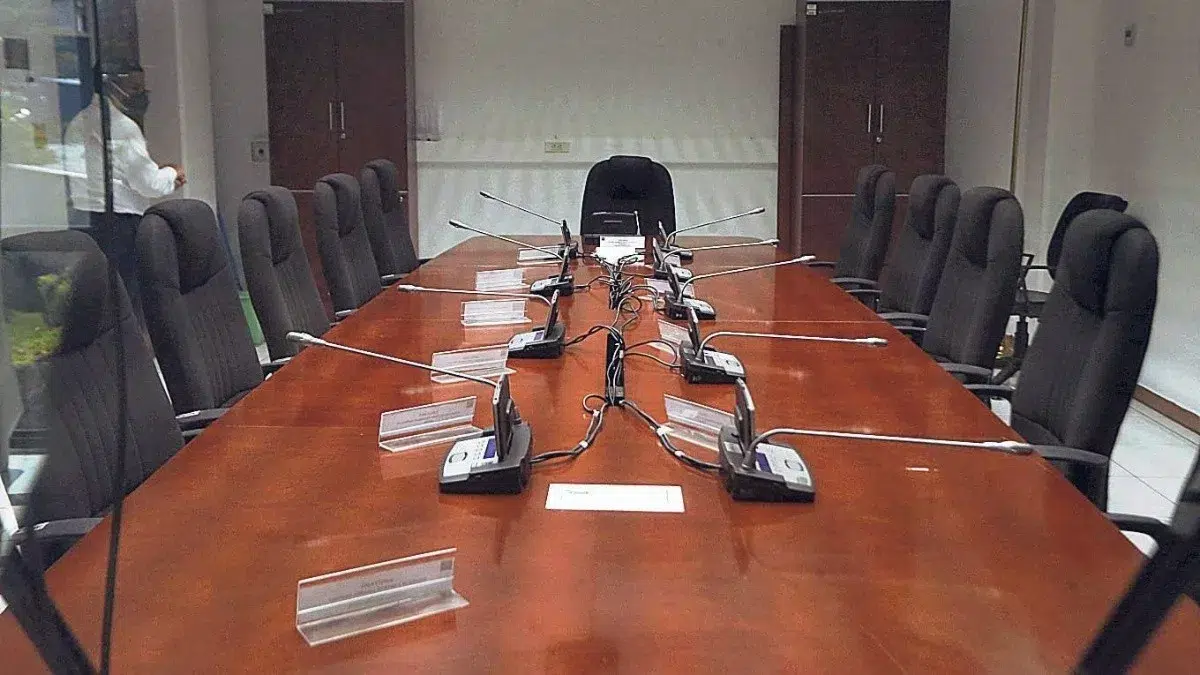The Assembly, controlled by Nuevas Ideas, worked less in 2023 than in 2022. And in the 12 months of the ending year, it produced as much as in seven months of 2021 when the legislature began.
These figures reflect the legislative work of this year, in which 126 dispensations of procedure and 228 opinions from the working committees were approved, among the 20 permanent ones and three special ones created this year.
The figures show a decrease compared to 2022 when 183 dispensations and 266 opinions were approved.
In fact, of the 20 permanent committees of the Assembly, only four produced more opinions this year.
These are: Finance, which went from 81 to 96 opinions; Economy, which increased from 16 to 21; Justice, which went from 13 to 15; and Defense, which increased from two to five.
Then, there were three committees that issued the same amount as the previous year: Culture (21), Public Works (9), and Agriculture (6). Besides that, the other 13 committees have lower work figures. In fact, two of them did not issue any opinions throughout 2023.
Among those two that ended the year at zero is the Electoral Reforms committee, which is pending compliance with a ruling from the Constitutional Chamber that ordered the reform of the Natural Person Name Law to allow for name changes for the LGBTIQ+ population.
The other committee that did not produce results was the Finance committee, which has had 18 months since it issued its last opinion, and only started the discussion for a reform of the Commercial Code this month.
While the figures for legislative work are declining, members of the ruling party have highlighted extensions to the state of exception as one of the important issues addressed this year, as well as measures to try to control inflation.
In response, opposition lawmakers have pointed out the need for the Assembly to be more productive. “When a bill is addressed, no matter what it is, the participants are exclusively government spokespersons; I don’t recall participation from civil society actors,” lamented Johnny Wright (Nuestro Tiempo).
Meanwhile, Claudia Ortiz (Vamos) stated: “The first two years were focused on concentrating power in institutions; that machinery designed through this Assembly is already in motion, and power has needed the Assembly less.”
Producción de la Asamblea fue menor que durante 2022
La Asamblea controlada por Nuevas Ideas trabajó menos en 2023 que en 2022. Y en 12 meses del año que está por terminar produjo tanto como en siete meses de 2021, cuando inició la legislatura.
Así lo reflejan las cifras del trabajo legislativo de este año, en el que se aprobaron 126 dispensas de trámite y 228 dictámenes provenientes de las comisiones de trabajo, entre las 20 permanentes y tres especiales creadas este año.
Las cifras reflejan una baja en comparación con 2022, cuando se aprobaron 183 dispensas y 266 dictámenes.
De hecho, de las 20 comisiones permanentes de la Asamblea, solo cuatro produjeron más dictámenes en el presente año.
Estas son: Hacienda, que pasó de 81 a 96 dictámenes; Economía,que subió de 16 a 21; Justicia, que pasó de 13 a 15; y Defensa, que subió de dos a cinco.
Luego, hubo tres comisiones que dictaminaron la misma cantidad que el año anterior: Cultura (21), Obras Públicas (9), y Agropecuaria (6). Fuera de eso, las otras 13 comisiones tienen cifras menores de trabajo. Inclusive hubo dos que no dictaminaron nada en todo 2023.
Entre esas dos que cerraron el año en cero está la de Reformas Electorales, que tiene pendiente cumplir una sentencia de la Sala de lo Constitucional que ordenó reformar la Ley del Nombre de la Persona Natural para permitir el cambio de nombre a la población LGBTIQ+.
La otra comisión que no dio frutos fue la Financiera, que tiene 18 meses desde que emitió su último dictamen, y que, recién, este mes inició la discusión para una reforma al código de comercio.
Si bien las cifras del trabajo legislativo van a la baja, diputados del oficialismo han destacado las prórrogas al régimen de excepción como uno de los temas importantes vistos este año, así como medidas para intentar controlar la inflación.
Ante eso, diputados de oposición señalaron la necesidad de que la Asamblea sea más productiva. “Cuando se aborda un proyecto de ley, sea el que sea, los participantes son exclusivamente voceros del Gobierno; no recuerdo participación de actores de la sociedad”, lamentó Johnny Wright (Nuestro Tiempo).
Mientras que Claudia Ortiz (Vamos) consideró: “Los dos primeros años se enfocaron en concentrar poder en instituciones; esa maquinaria que se diseñó a través de esta Asamblea ya está en marcha, el poder ha necesitado menos a la Asamblea”.

